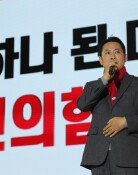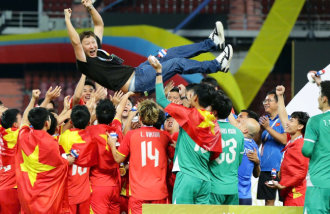[Opinion] `No Stress or Competition` Schools
[Opinion] `No Stress or Competition` Schools
Posted September. 27, 2008 09:13,
On Sept. 4, a war of words erupted in the National Assemblys Science and Technology Committee over private education. Former Education Minister Kim Jin-pyo of the main opposition Democratic Party said, When asked why they get private tutoring, middle school students often reply they receive it to enter specialized high schools. In this sense, foreign language high schools are the culprits. In response, Kwon Yeong-jin of the ruling Grand National Party said, Lawmakers should come clean on this issue given that quite a significant number of them have tutors for their children. Parents send their children to foreign language high schools because general high schools fail to meet expectations." He also said the fundamental reason for private education is poor high school education.
Former Education Minister and Seoul National University professor Moon Yong-lin told a seminar yesterday that the Korean ideal of egalitarian schooling has been a failure. Before the implementation of egalitarian education in 1973, competition and vitality among schools and teachers were palpable, he said. But since the introduction of the egalitarian school system, students have been automatically allotted to a school district, removing school competition for recruiting the best students. As a result, the atmosphere of "no tension or competition" is the norm in high school.
Moon said the inability of high schools to satisfy the expectations and needs of parents and students have fueled higher demand for private education. Numerous debates have raged over private tutoring, but nobody can deny that the problem will disappear if high schools play their role properly. A growing consensus is that the equalitarian education policy should be complemented. Nevertheless, those who insist on "egalitarian schooling" have opposed such an opinion.
The Korean Teachers and Educational Workers Union has rejected the government-proposed teacher evaluations slated for next month. It has threatened a mass rally along with like-minded students and parents on the evaluation day. The nationwide evaluation test is designed to revive the competitive spirit that the egalitarian education policy destroyed. The union will also submit a petition to the Constitutional Court opposing international middle schools aimed at promoting more school systems. There is no end in sight in the unions efforts to maintain the status quo in education, including opposition to teacher evaluations and refusal to disclose scholastic records. As long as those with vested interests keep thinking of themselves, the specter of private education still haunt Korean society.
Editorial Writer Hong Chan-sik (chansik@donga.com)



![넘치는 전재수 과거 사진들…유죄의 증거일까, 무죄의 증거일까[청계천 옆 사진관]](https://dimg.donga.com/c/138/175/90/1/wps/NEWS/IMAGE/2025/12/20/132997378.1.jpg)


![“아무리 씻어도 안 빠져” 김치통 냄새, □□으로 싹 [알쓸톡]](https://dimg.donga.com/c/138/175/90/1/wps/NEWS/IMAGE/2025/12/18/132993861.3.jpg)
